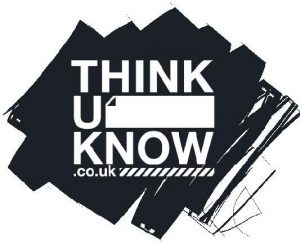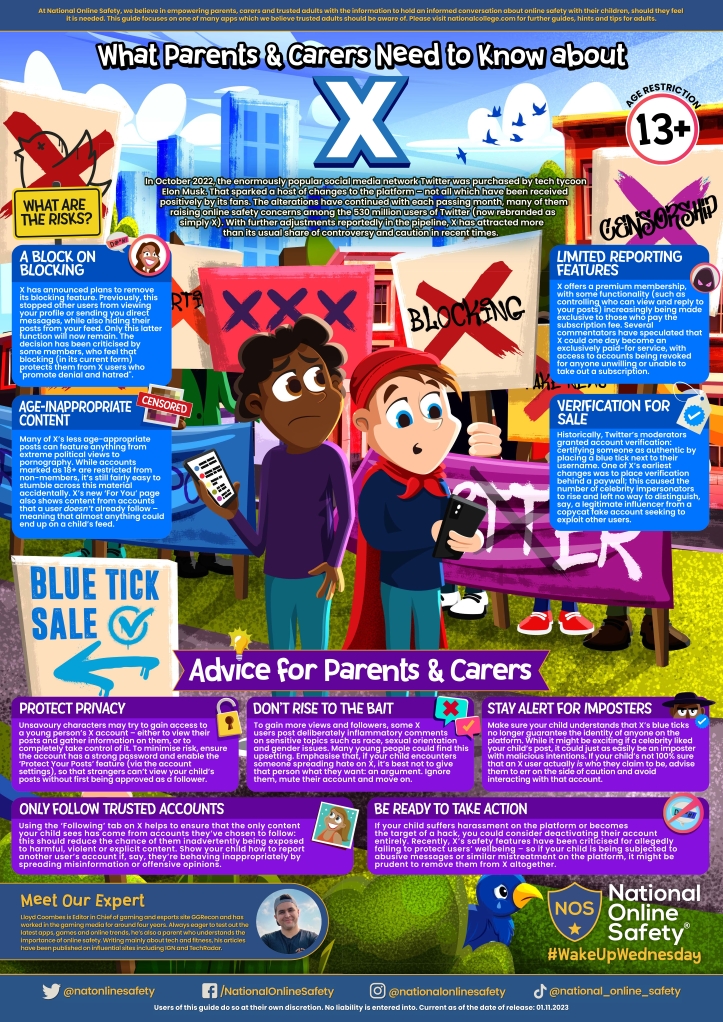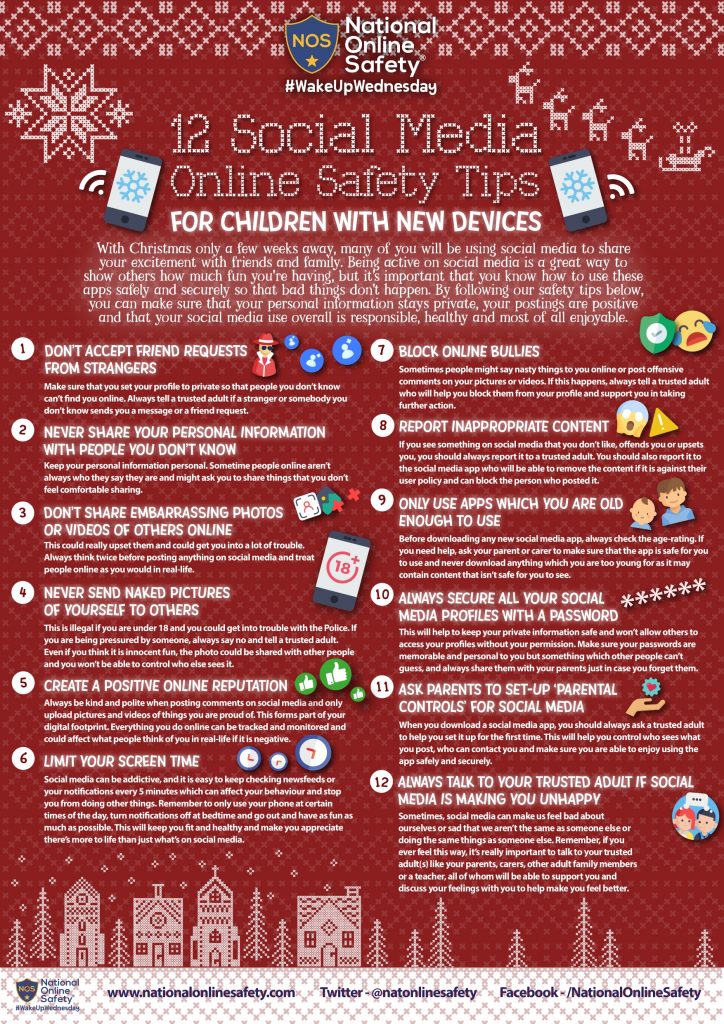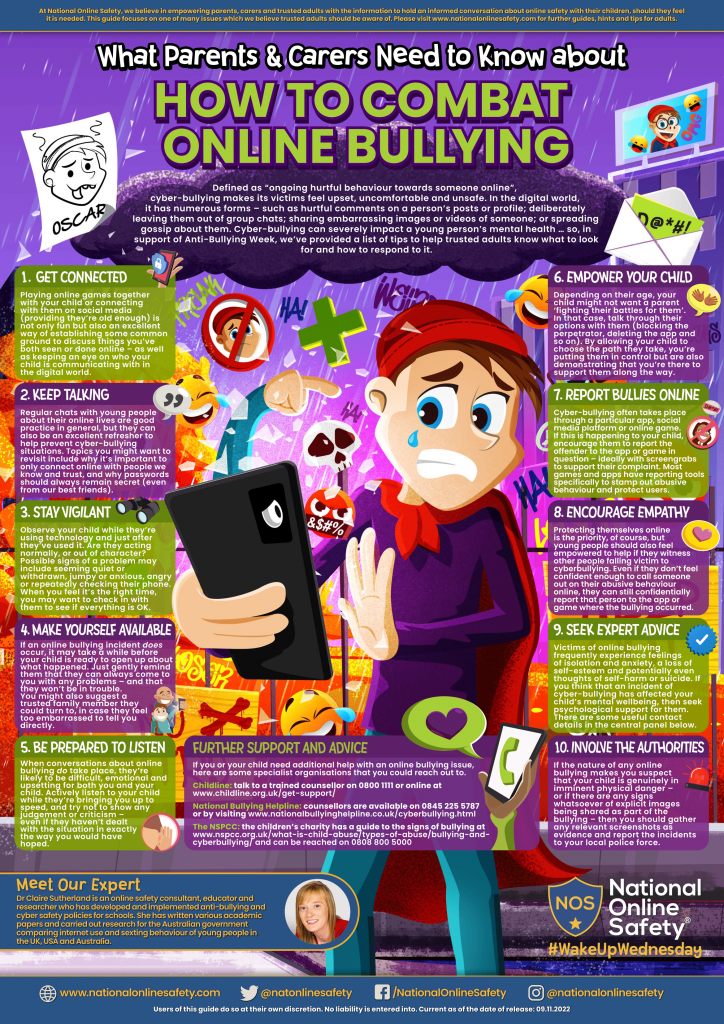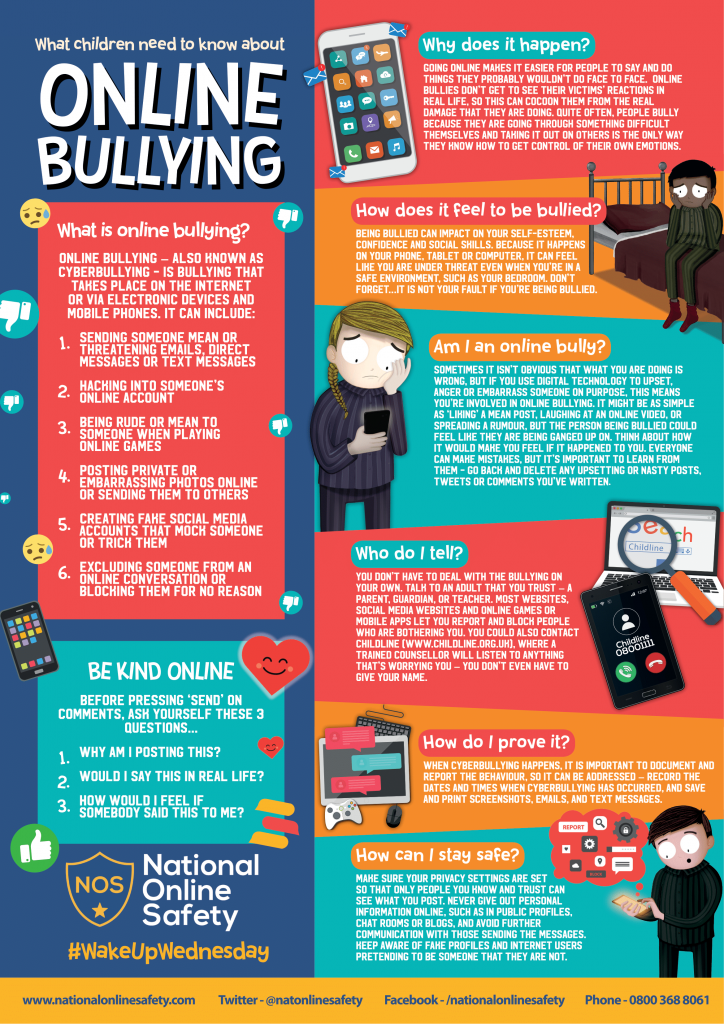E-safety is introduced to students through our ICT curriculum and in addition, it is addressed regularly throughout the year during PSHE, Citizenship and the timetabled Pupil Progress Days. We also run e-safety assemblies and special events such as Safer Internet Day and Anti-Bullying Week at specific times through the year.
We hold information evenings for parents and carers – recently we have had a CEOP trained professional deliver a fantastic training event for all parents and staff, as well as a training event for parents by one of our members of the senior leadership team.
Our e-safety policy is an integral part of our safeguarding policy and can be found on the policies page of our website. This policy is reviewed annually.
E-safety is an integral part of our behaviour policy and e-safety issues are monitored and addressed regularly to address the constant changes in the use of technology.
What can you do as a parent or carer to keep your child safe online?
The internet is an amazing resource which enables children and young people to connect, communicate and be creative in a number of different ways, on a range of devices. However, the internet is always changing, and being able to keep up to date with your children’s use of technology can be a challenge. You may sometimes feel that your children have better technical skills than you do, however children and young people still need advice and protection when it comes to managing their lives online and using the internet positively and safely.
It is essential to be involved in your child’s online life. The internet has become an integral part of people’s lives and it is a key element of the way in which many young people now socialise. As a parent or carer you have a challenging job, you need to know what your children are doing online and also help them to do it in a safe way. With technology changing on a day-to-day basis, the best way to stay informed is to get involved. To get tips on how to talk to children about their online activity, you can go to the following link – Tips on how to discuss tricky issues with your child
Some useful conversation starters are as follows:
- Ask your child to tell you what they like most about the internet and why e.g. sites they visit, ways to communicate, games they play, etc.
- Ask your children what they would like others to do to improve or change the internet and make it a better place.
- What does a better internet mean to them? (Is it safer, kinder, more fun, fewer age restrictions, etc.?)
- Ask them to tell you how they stay safe online. What tips do they have for you to deal with online issues and where did they learn them?
- Ask your children if they know where to go for help, where to find advice, privacy settings and how to report or block within the services they use
What can you do right now?
There are real advantages in maintaining an open dialogue with your child about their internet use, encourage them to talk to you about their time online; for example who they’re talking to, what services they are using, and any issues that they may be experiencing. Also, bear in mind that multiple devices now connect to the internet including gaming consoles and that internet connections could be made through free Wi-Fi or 3G/4G mobile connections.
Use parental controls on devices that link to the internet, such as the TV, laptops, computers, games consoles and mobile phones. Parental controls are not just about locking and blocking, they are a tool to help you set appropriate boundaries as your child grows and develops. They are not the answer to your child’s online safety, but they are a good start and they are not as difficult to install as you might think. Service providers are working hard to make them simple, effective and user friendly. Find your service provider and learn how to set your controls.
- Familiarise yourself with the privacy settings and reporting features available on popular sites and services.
- Consider using filtering software to block unwanted content. Find your service provider and learn how to set your controls .
- www.saferinternet.org.uk/advice-and-resources/parents-and-carers/parental-controls
- Encourage your children to ‘think before you post.’ Online actions can impact not only yourself but the lives of others. Content posted privately online can be publicly shared by others, and may remain online forever.
- Understand the law. Some online behaviour may break the law, for example when downloading or sharing content with others. Be able to recommend legal services.
- If your child is being bullied online, save all available evidence and know where to report the incident, for example to the school, service provider, or the police if the law has been broken.
- Encourage your children to protect their personal information, and create strong passwords for every account.
- Keep all equipment that connects to the internet in a family space. For children of this age, it is important to keep internet use in family areas so you can see the sites your child is using and be there for them if they stumble across something they don’t want to see.
- Know what connects to the internet and how. Nowadays even the TV connects to the internet. Make sure you’re aware of which devices that your child uses connect to the internet, such as their phone or games console. Also, find out how they are accessing the internet – is it your connection, or a neighbour’s wifi? This may affect whether the safety setting you set are being applied.
For a wide range of advice and ideas on how to maintain safe behaviour online you can visit the UK Safer Internet Centre and the following links:
- http://www.saferinternet.org.uk/advice-and-resources/parents-and-carers
- http://www.childnet.com/resources/know-it-all-for-parents
Parents’ Guide to Technology
- http://www.saferinternet.org.uk/advice-and-resources/parents-and-carers/parents-guide-to-technology
- http://www.childnet.com/resources/know-it-all-for-parents/kiafp-cd
Online Gaming: An introduction for parents
Internet safety advice is directly applicable to the gaming environment. It is essential that children are aware of the potential issues and are given the skills and knowledge to help manage and reduce these risks, with the help of those around them. This leaflet explores the online gaming environment and provides a wealth of safety advice.
Guidance on social networking sites
Childnet has produced a guide which focuses on helping parents understand the positive and creative ways young people are using social networking spaces (e.g. Facebook, Twitter and Google+). It also points out the potential risks of using these sites and ways to minimise these risks. This is available to download on the following link:
Facebook Family Safety Centre: Provides useful information and tips for parents and carers, teenagers and educators. These pages do not require a Facebook account in order to view them.
http://www.facebook.com/safety
Google+ Safety Centre: Provides useful information and tips for parents and carers, teenagers and educators. These pages do not require a Google account in order to view them.
http://www.google.com/+/safety
Twitter Help Centre: Tips for Parents: Provides useful information and tips for parents and carers. These pages do not require a Twitter account in order to view them.
http://www.support.twitter.com
Further useful links on e-safety
- Think U Know – a great site for young people.
- CEOP – Child Exploitation and Online Protection Centre – a must read!
- Get Net Wise – get wise about staying safe.
- Cyber Bullying – How to deal with online bullying.
- Bullying Information – What’s the Best Thing to Do About Bullies?
- Stay Safe Online – General Internet usage tips.
- Sorted – Keep your information secure online.
- CBBC Newsround – a bit more information for children and parents.
The Child Exploitation and Online Protection agency CEOP: Advice for parents, you can also report any concerns directly to the police through this website.
Click the logo below to visit the “Think U Know website”.
UK Safer Internet Centre
The UK Safer Internet Centre is coordinated by a partnership of three leading organisations; Childnet International, the South West Grid for Learning and the Internet Watch Foundation. It is co-funded by the European Commission and has three main functions: an Awareness Centre, a Helpline and a Hotline.

